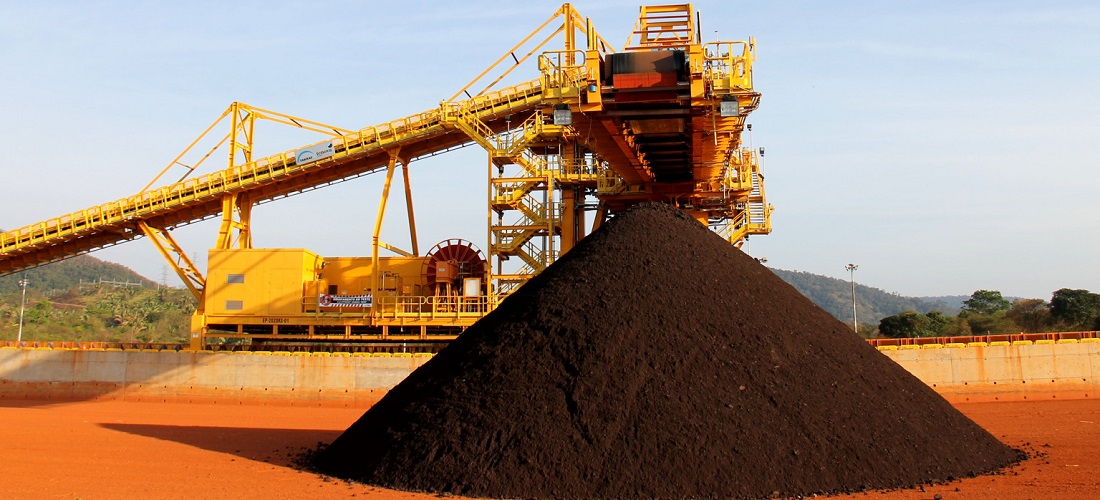
Brazilian mining registers significant drop in 1st semester
Jul, 29, 2022 Posted by Gabriel MalheirosWeek 202230
The Brazilian mining sector recorded a drop of 52.5 percent in the trade balance in the 1st half of 2022, compared to the same period last year. Consequently, there was a reduction of 24 percent in revenue, falling from BRL 149 billion to BRL 113.2 billion. Regarding the total production, the 441 million tons of mineral goods represented a decline of 9 percent.
The reduction strongly influenced the performance of exports to China. The Asian country is the main buyer of Brazilian iron ore. The balance was released on Wednesday (Jul. 27) by the Brazilian Mining Institute (Ibram), which represents the largest companies in the sector operating in the country. Considering the dollar values, transactions with China involving iron ore fell by 32.3 percent, the document reads.
According to Ibram, several factors may be associated with the reduction in Chinese imports, such as the reduced activity in the steel industry, a measure to control air quality during the Winter Olympics, greater environmental restrictions imposed by the government, intensified price controls, and reduction in steel demand, as a result of the slowdown in industrial production amid a strict policy to combat the COVID-19 pandemic. In addition, the war between Russia and Ukraine was also mentioned as an element that generated fear in global producers, leading to greater caution.
Iron ore – which accounts for more than 70 percent of all exports in the Brazilian mining sector – recorded a reduction of 30.1 percent in the figures, falling from 21.5 billion dollars in the first half of 2021 to 15 billion dollars in the first half of this year. In the first half of 2022, China imported 64.8 percent of Brazilian exports of the product. Other trading partners that feature prominently in the balance sheet are Malaysia (5.2%), Japan (4.1%), and Bahrain (3.8%).
See below the track record of the iron ore volume shipped to China each month from January 2019 to June 2022. The data below was gathered by the Datamar business intelligence team on the platform DataLiner.
Brazilian Iron Ore exports to China | Jan 2019 – Jun 2022 | WTMT
Source: DataLiner (click here to request a demo)
There were also significant drops in Brazilian exports of gold (7.8%), manganese (45%), copper (20%), and bauxite (14%). Some minerals, however, registered an increase in the values generated with exports. This is true for niobium (9%) and kaolin (13%). Due to the dollar exchange rate variation and prices in the international market, the latter yielded higher figures even with a lower volume traded.
At the same time, imports rose significantly and also strongly influenced Brazil’s trade balance, reaching 9.4 billion dollars, 199.9 percent more than in the same period last year. Businesses involving coal for steel use and potash to manufacture fertilizers represented 92 percent of total imports.
The president-director of Ibram, Raul Jungmann, mentioned that the Brazilian mining industry has cyclical behavior that depends on the humor of the international market. In 2021, a few records were broken. According to Jungmann, in response to last year’s virtuous performance, there has been a speculative attack on the gains of the mineral sector.
“I’m referring to proposals now being reviewed by the National Congress. Taking into consideration the increase in production, income, and exports in 2021, they want to boost, in fact, nearly double royalties collection. Therefore, we can clearly observe that the situation has shifted. So, naturally, we want to return to the previous situation soon, but we must recognize the cyclical component,” he remarked.
The increase in charges, according to Jungmann, would result in an increase in mining expenses and a loss of competitiveness in the industry, which is productive and delivers foreign cash to the country. Jungmann also objected to the establishment of the Mineral Resources Inspection Fee (TFRM) through state legislation in Minas Gerais, Pará, and Amapá. The National Confederation of Industry (CNI) has questioned its constitutionality, which is being investigated by the Federal Supreme Court (STF).
Source: Comex do Brasil
To read the full original article, please go to: https://www.comexdobrasil.com/desaceleracao-na-economia-da-china-impacta-setor-de-mineracao-e-superavit-comercial-desaba-542-no-1o-semestre/
-
Steel and Aluminium
Jul, 25, 2023
0
Government extends anti-dumping measure on imports of carbon steel pipes from China and Romania
-
Fruit
Nov, 13, 2019
0
Brazil will export melon to China
-
Other Logistics
Aug, 12, 2019
0
ANTAQ approves container handling and storage standard
-
Other Cargo
Apr, 01, 2022
0
China faces a fertilizer crisis as anti-Covid measures make deliveries difficult


